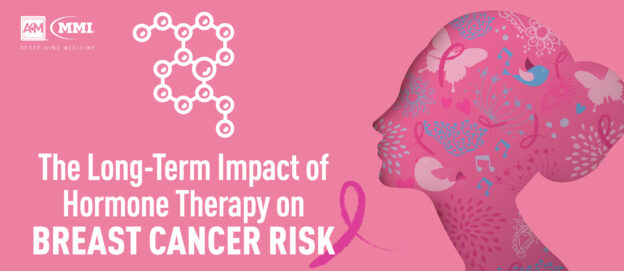Earlier this week, JAMA published findings surrounding the uses and consequences of menopausal hormone therapy: a subject that has been considered contentious and controversial for several decades–in large part due to the outcome of the Women’s Health Initiative Study, which was halted prematurely in 2002 because of data that indicated the combination of Premarin (estrogen) and Provera—an artificial form of progesterone known as progestin—increased heart disease and breast cancer.
Yet the results are far more complex and nuanced: most people are unaware of the fact that women who had hysterectomies only received the premerin, while other women received the combination pill. The only increase in breast cancer that occurred was in the latter group; when estrogen is combined with progestin, the ability of estrogen to cause stimulation of breast tissue is increased—yet estrogen alone does not. The group who only received estrogen actually showed a decreased risk of breast cancer; moreover, the estrogen was protective even when women were diagnosed with breast cancer.
Jennifer Landa, MD, Chief Medical Officer of BodyLogicMD, has dedicated her practice to bioidentical hormone therapy and preventive medicine, in order to assist men and women resolve menopausal and andropausal symptoms. Dr. Landa explains that results are often contingent upon the ways in which hormones are administered, in addition to the fact that not all hormones are created equally. “Only someone trained as an expert knows the good and bad, and really understands the studies. When we talk bioidentical, it is a way of saying the same exact chemical structure of what is in our body naturally. People do not realize that there are already plenty of prescriptions with bioidentical hormones.”
Bioidentical hormone replacement therapy technically refers to the use of hormones that mimic the endogenous hormones produced by our bodies. Landa clarifies that much of the hormone literature is inaccurate, because most of the studies are conducted with ‘bad’ hormones, like progestin. Landa further discusses a study at Yale, years after the 2002 study—after which women came off of hormones in droves—in which researchers and scientists state that the women only taking estrogen should have stayed on it, and that many more women died of heart disease because they were taken off of their hormones. After retrospectively analyzing and assessing the data of the Women’s Health Initiative study, it was found that women who began hormones during menopause had decreased risks of heart disease. Landa terms this the ‘timing hypothesis,’ stating: “Timing is of the essence in hormone therapy. Unfortunately, many doctors are still not schooled properly in this area. Even the American College of OBGYN has agreed that we should not be taking older women off of hormones, as symptoms will likely recur.”


